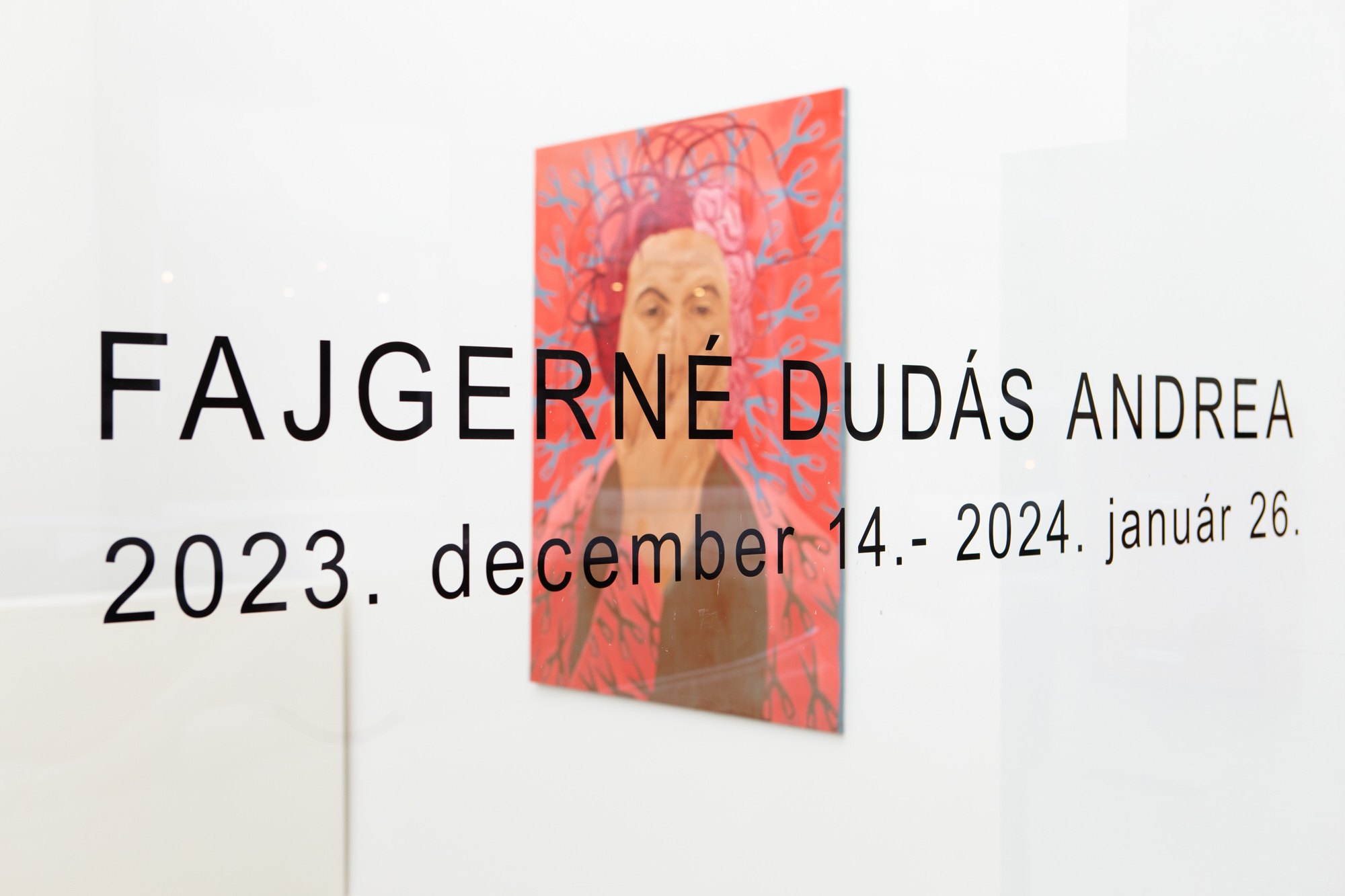
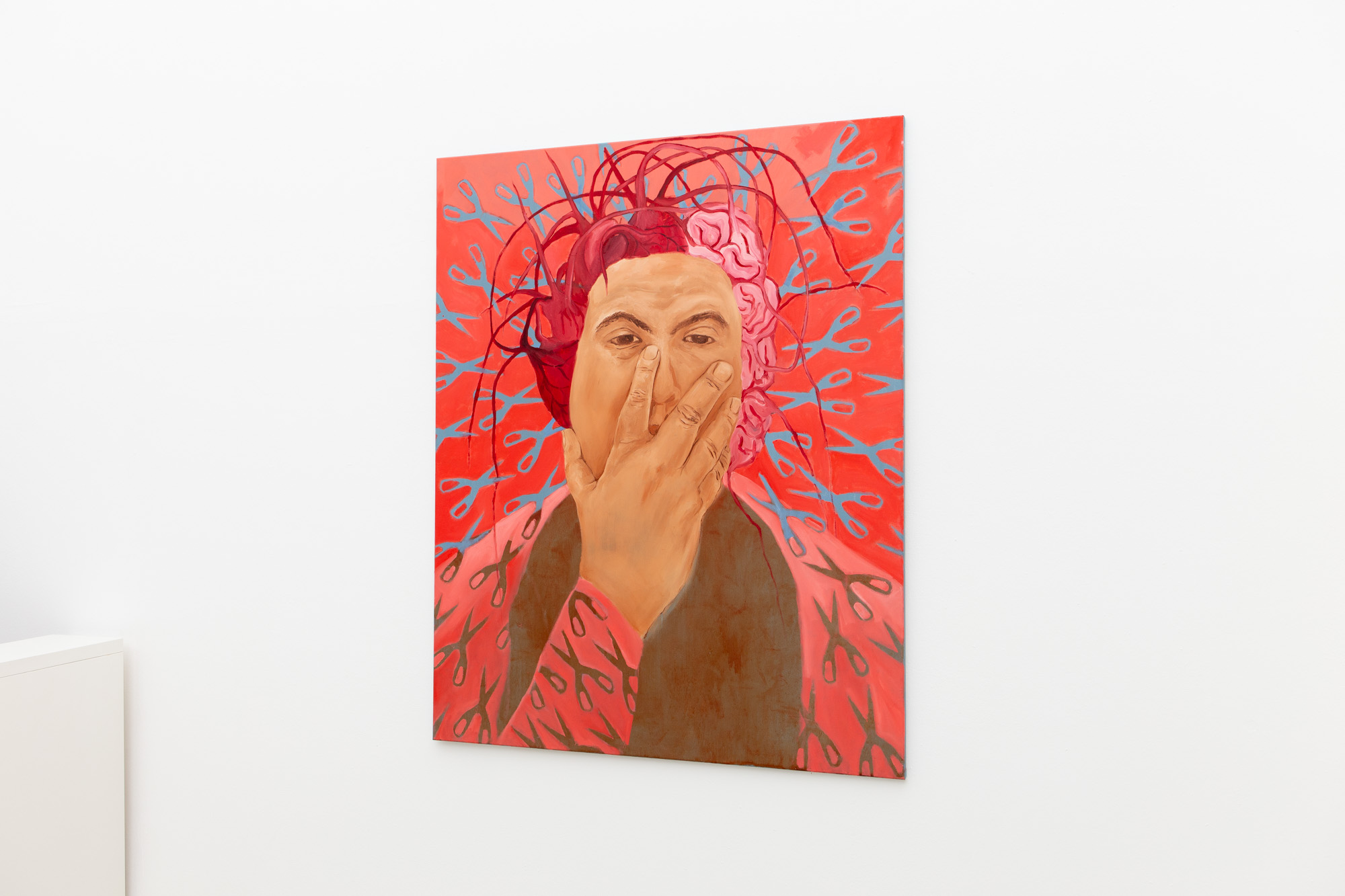
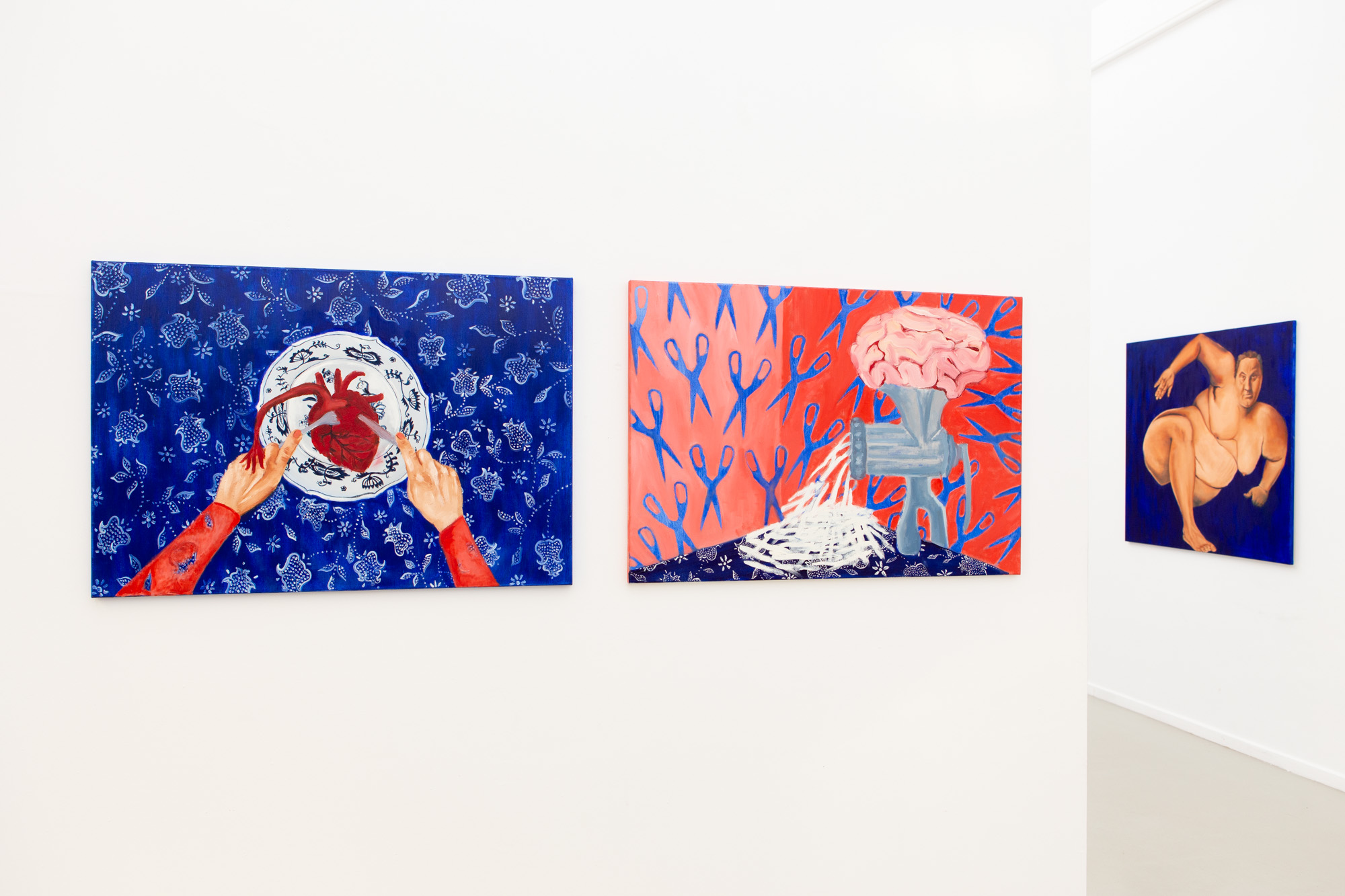
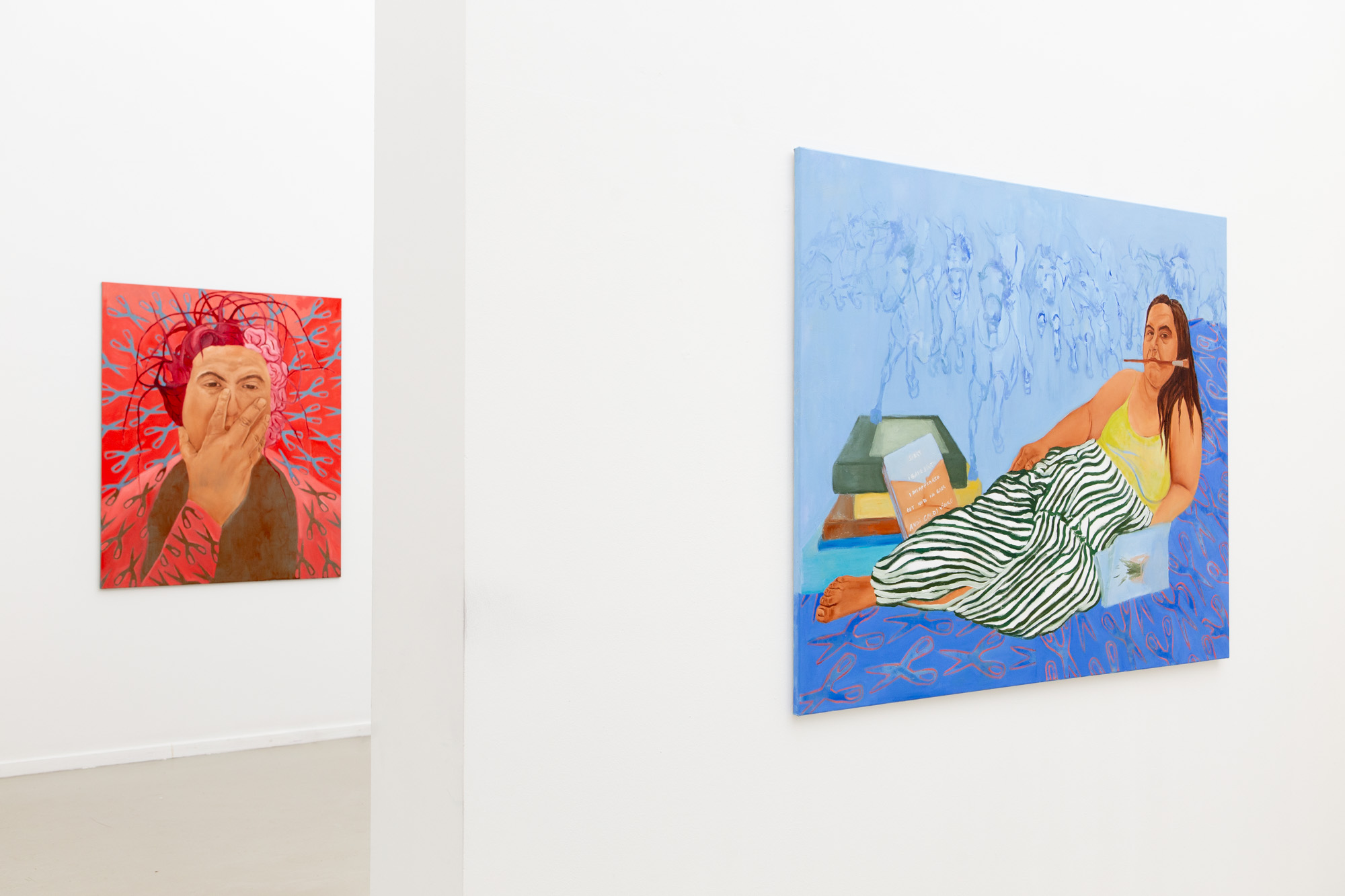
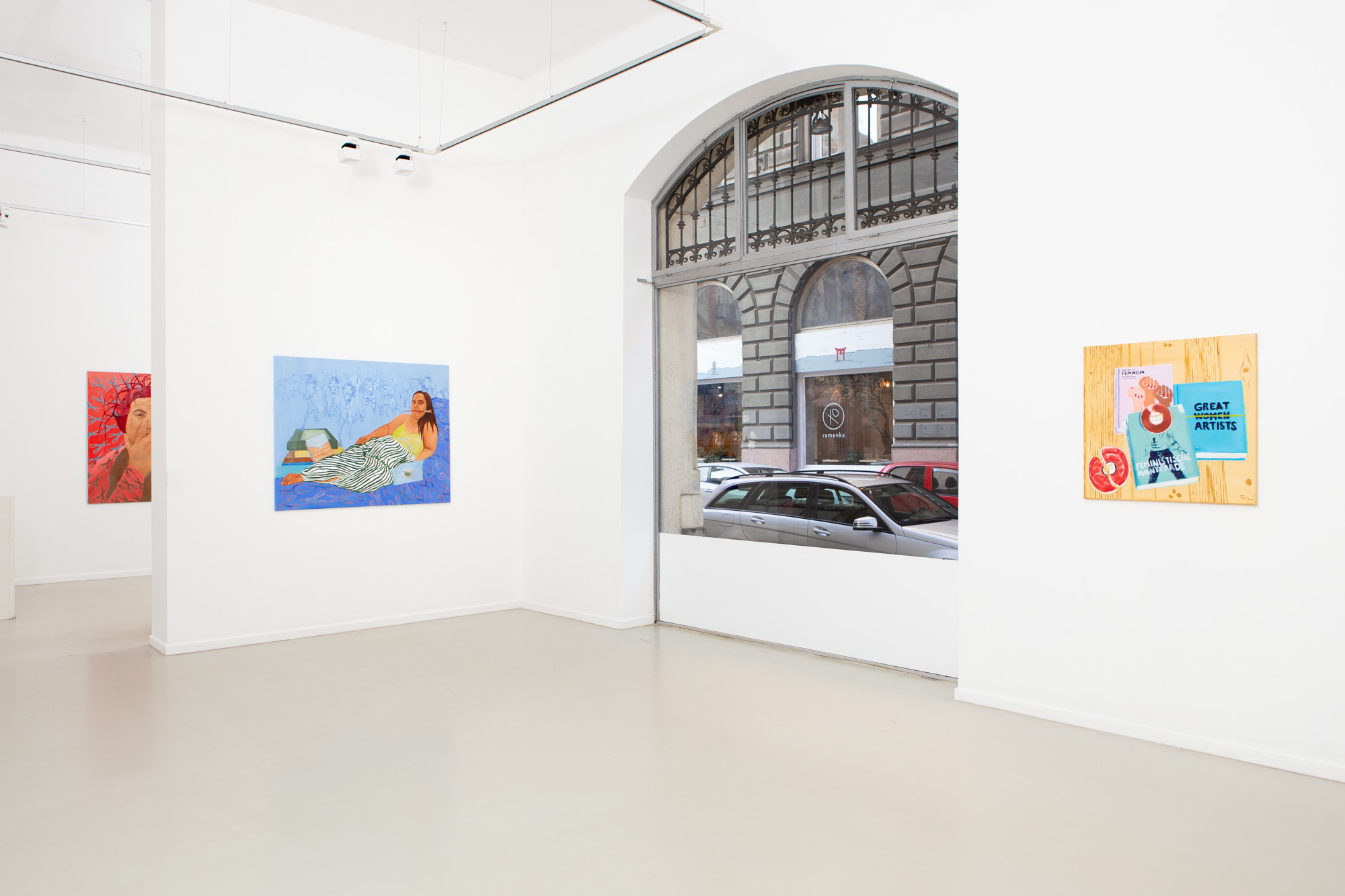
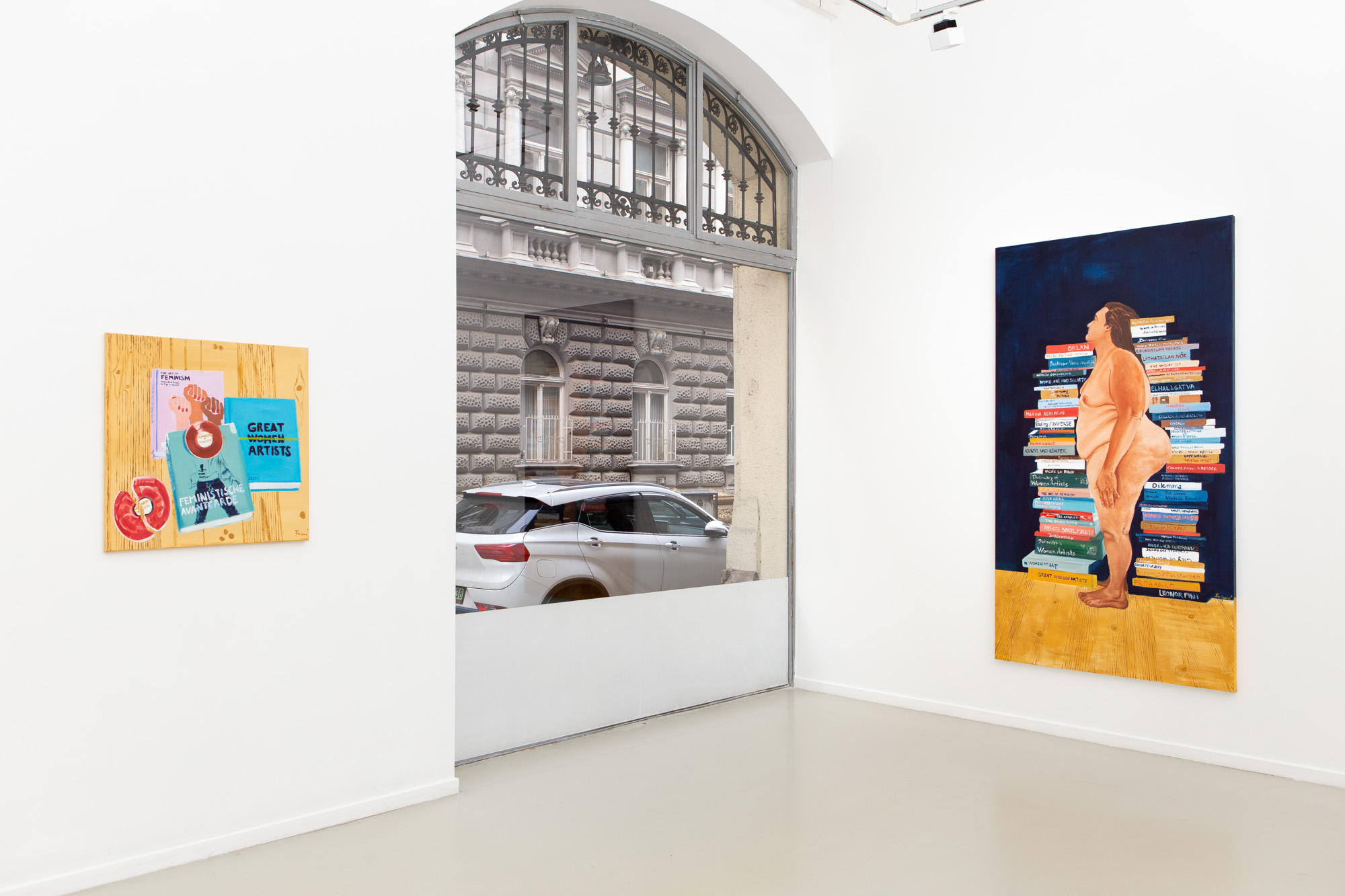
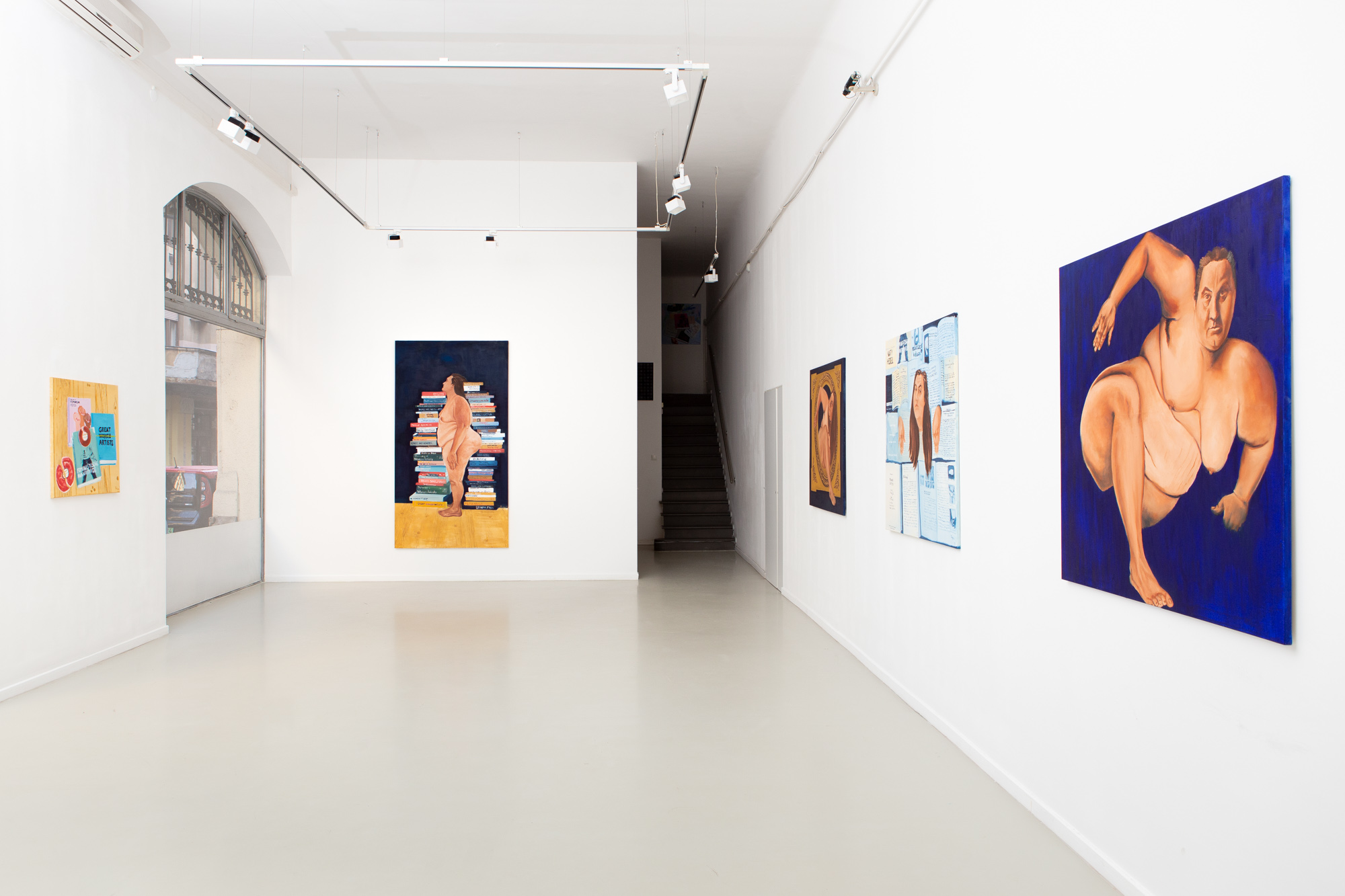
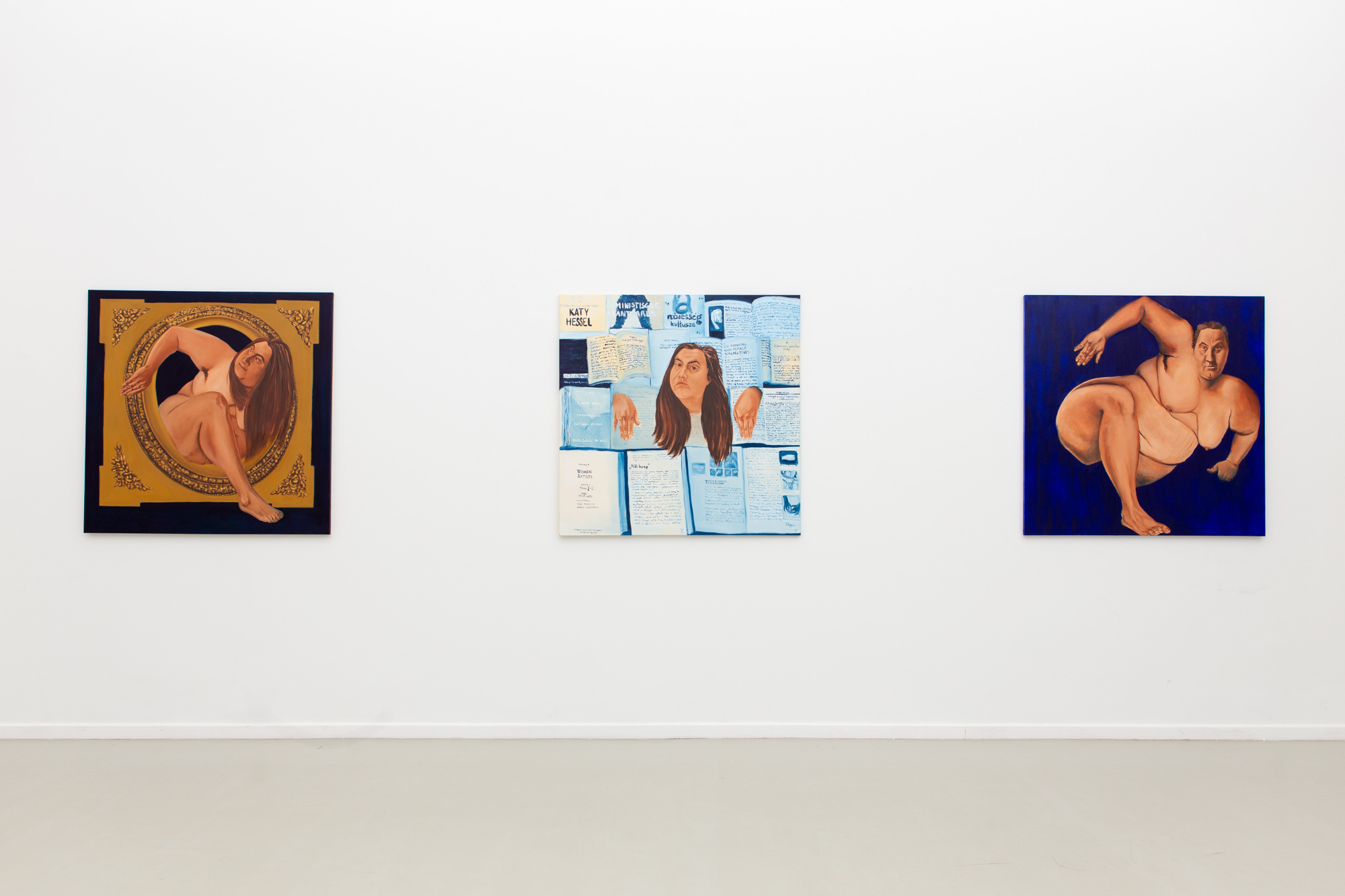
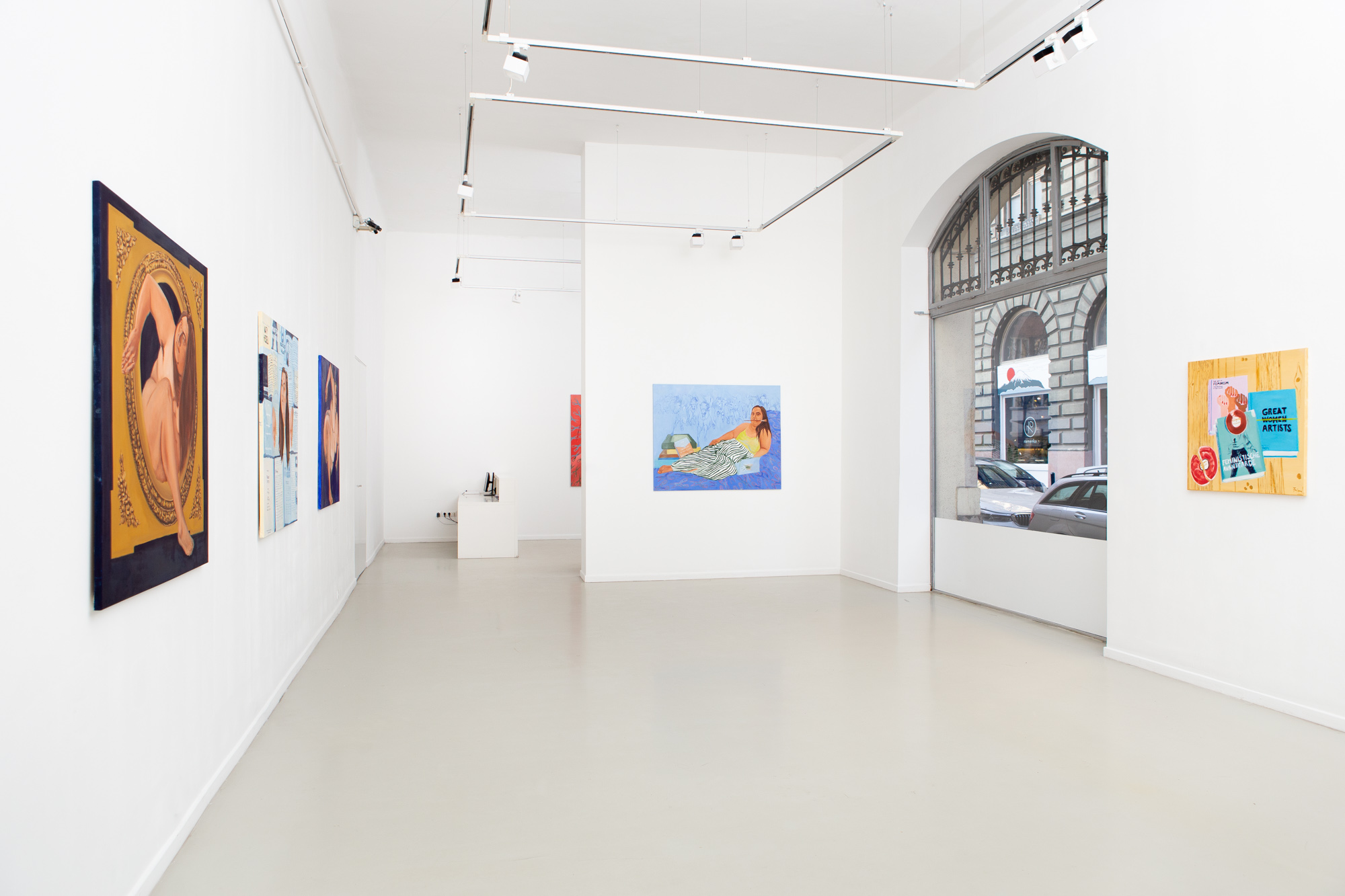
Andrea Fajgerné-Dudás
Concordia Discors
The Erika Deák Gallery is delighted to present the first solo exhibition of Fajgerné Dudás Andrea in the gallery.
Concordia discors, that is harmonius disharmony, is a phrase borrowed from Horatius, and according to him, the harmony of the world is created by the balance of opposing forces. This is the state when Dionysian impetuosity is balanced by the calming Apollonian will, when chaos becomes order. Fajgerné’s art has also reached a similar point in her art. After juxtaposing parallel, often confronting roles in her past works, a renewed artistic attitude characterizes her latest cycle of paintings, in which a newly found harmony is detected. Although Fajgerné continues to reflect on traditional female roles and the relationship between her own body and the body image dominated by the media and consumer society, her work is still full of hidden references to women’s art and feminist canon, but the diversity that has characterized her art so far is now brought together into a precise, thoughtful statement.
In the exhibition, we see a number of paintings that depict some kind of fight. A struggle with oneself, a struggle against social expectations, a struggle between the inner and the outer self, a struggle between the heart and the mind. In one painting, she is stabbing a knife into a heart, emphasizing the pain that words can cause, while on the other, she is grinding her brain on a meat grinder, which turns into slips of paper with to-do lists.
The central work of this exhibition is a quasi-triptych, where the artist resolutely leaves behind her the roles that have previously controlled her and other women artists. In the strictest sense of the word, she steps outside the boundaries that had hitherto defined her; she is no longer just a housewife, a feminist artist, a performer, an overweight woman, or a mother, but an autonomous creator who can express all this knowledge in a single image. While one of the paintings is a gesture of casting off the white male-dominated art historical tradition, where the artist breaks out of Yves Klein’s blue paint before he can spin her in it. Another composition is a paraphrase of Orlan, where the artist locks herself into books of feminist literature, a straitjacket of sorts, suggesting that without a precise knowledge of the art historical canon, it is impossible to break away from it, to transcend it. These paintings are precise moments of taking back the self and the body.
The other key work in the exhibition, The Blue Room, is another example of the artist’s arrival. A paraphrase of Susan Valadon’s painting from 1923 shows a woman who has already found her concordia, who peacefully contemplates the harmony born of the reconciliation of separate roles. Looking at her as Venus, the figure is accompanied by her favorite books, and as the riders are fading in the background, calmness and confidence of knowledge appear on her face. This Venus no longer has to be bare; she is no longer at the mercy of her spectator. Just as the horsemen only suggest the memory of old battles, this Venus has already accepted herself and is able to paint and show its changing faces with particular sensitivity.
For more information, please contact the gallery.
Opening: December 13, Wednesday, 6 PM
Opening speech by: Zsuzska Kozák, art historian, art writer
On view: 2023. December 14 - January 26.
Open: Wednesday - Friday, 12:00 - 18:00